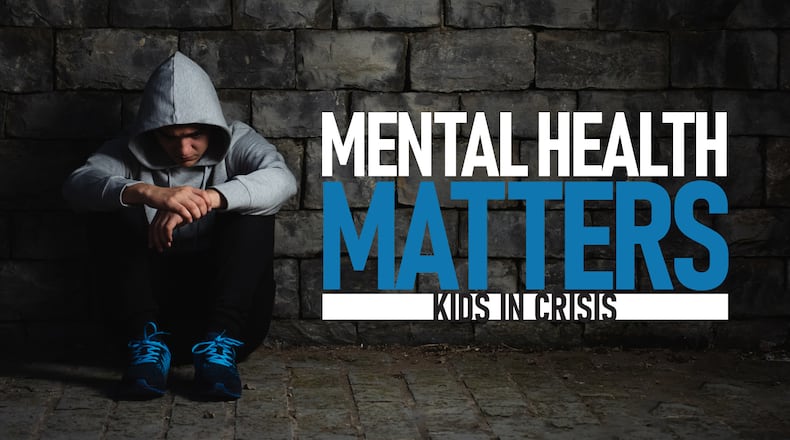In 2023 alone, 7,000 children were admitted to Dayton Children’s Hospital for mental health issues, including suicide attempts or suicidal ideation. That’s what Dayton Children’s CEO Debbie Feldman shared with a group of business leaders in March of this year.
In fact, mental health is the number one reason for admission.
“We are still getting kids, very consistently, coming to our hospital with thoughts of wanting to kill themselves,” Dr. Kelly Blankenship, associate chief medical officer at Dayton Children’s, told the Dayton Daily News. “That’s actually the number one reason that any child is admitted to Dayton Children’s Hospital is for having thoughts of wanting to kill themselves.”
The statistics are shocking — but they’re not unique to our area. They reflect a stark national trend that shows no sign of slowing.
• HOW TO GET HELP: Community Resource Guide
According to the Centers for Disease Control and Prevention’s (CDC) Youth Risk Behavior Survey, which looks at a decade’s worth of data from 2010 to 2021, “mental health among students continues to worsen, with more than 40% of high school students feeling so sad or hopeless that they could not engage in their regular activities.”
The CDC’s findings indicate that nationwide, mental health wellness indicators are all trending in a negative direction. For adolescent and teenage girls, the statistics are even more alarming: nearly 60% of female students experienced persistent feelings of sadness or hopelessness.
And while the kids aren’t okay, the data tells us something else: neither are the rest of us.
The National Health Interview Survey conducted in 2022 found that the percentage of adults who received mental health treatment in the past 12 months increased from 2019 to 2021. For adults of all ages, that figure increased from 19.2% to 21.6%; for those aged 18-44, it increased 18.5%-23.2%.
The impact of mental health affects everyone’s daily life. It impacts a person’s overall health and wellbeing, their ability to show up for themselves and people around them. The effects ripple out into our workplaces and our community.
But this is not all doom and gloom. Several individuals, advocates and organizations have been working to build coalitions to advocate for change and solutions. When I talked with Amy Thompson, provost of Wright State University, she told me about the Mental Health Task Force that she helped convene, which brings together members from all sectors and walks from the community. “There are people doing good work in this space,” she told me.
It’s that spirit that the Dayton Daily News is taking with its coverage of mental health. We’re focused on investigating the problem and the challenges, but we look to identify and highlight the work being done to address them — including solutions that could serve as inspiration or models elsewhere.
Because this is a community issue, our aim is to provide public service journalism — which means all the stories and resources in our Mental Health Matters coverage will be freely accessible to anyone in our community, thanks to the generosity of our subscribers.
You can follow our complete coverage online at DaytonDailyNews.com/mental-health-matters.
For more than 125 years, the Dayton Daily News has been a trusted part of this community, shining a light on the good things happening here and seeking solutions to the problems affecting us all. We don’t plan to stop anytime soon.
If you’d like to support this kind of in-depth local journalism, join us by subscribing today at Subscribe.DaytonDailyNews.com.
Thank you for reading,
Ashley Bethard
Editor, Dayton Daily News
Credit: Knack Video + Photo
Credit: Knack Video + Photo
COVERAGE TIMELINE
Mental health issues affect all segments of our community, in slightly different ways. Our in-depth reporting focus this year is centered on children through our Kids in Crisis series. But this important effort will not stop there. In the following months, we’ll address the larger community in crisis by investigating how mental health issues impact higher education, the workforce and seniors. We’d love your feedback on this effort. Please reach out to josh.sweigart@coxinc.com with suggestions on what to include in our coverage.
Kids in Crisis series:
- Sept. 8: Mental Health Resource guide
- Sept. 15: The kids are not alright: What it’s like to be a kid today – a lot different than you might imagine
- Sept. 29: Growing up in the web: Kids and technology
About the Author


